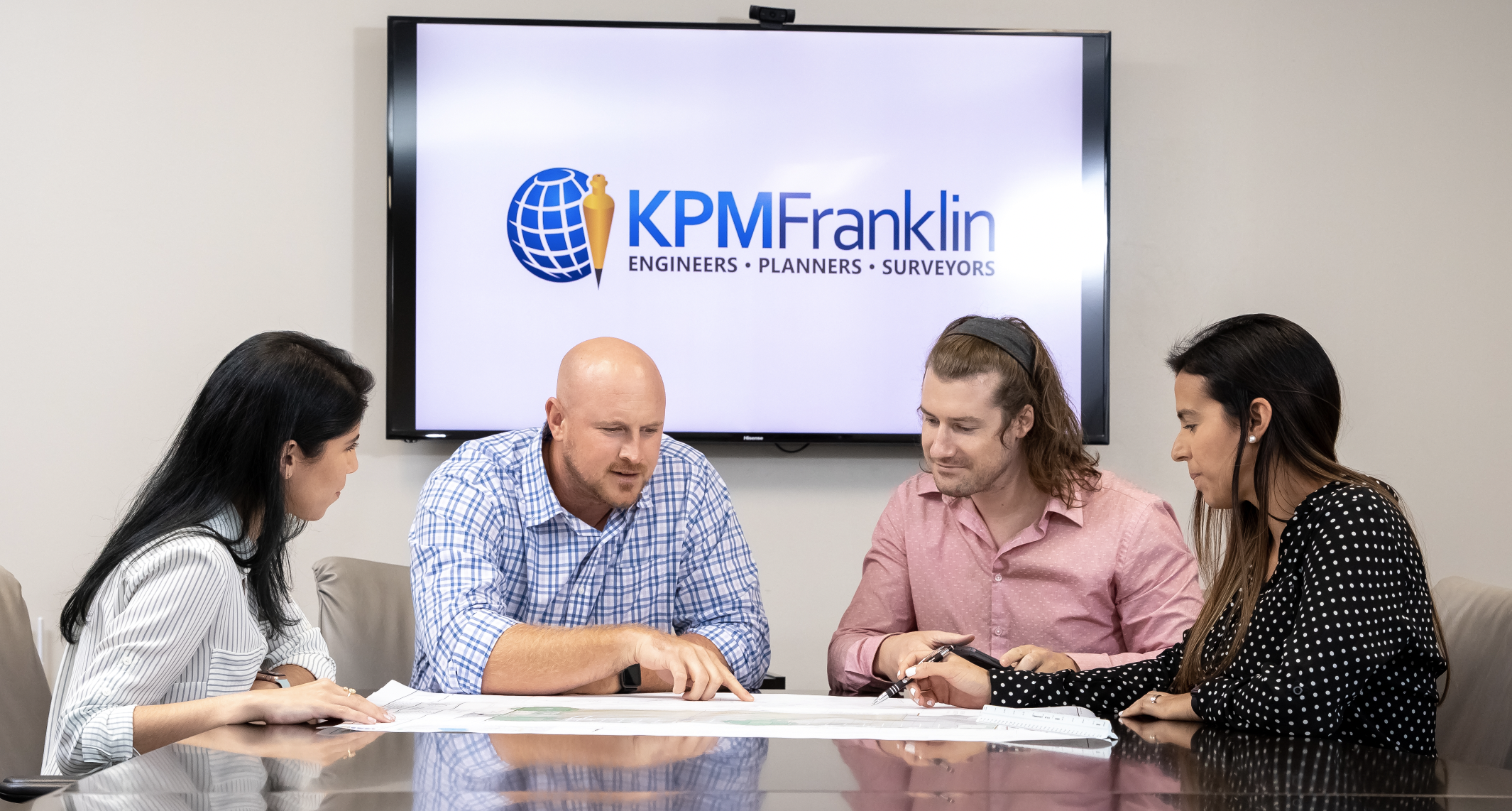October is Careers in Construction Month and we’re incredibly proud of our team of experienced professionals. Civil engineering is a rewarding and challenging career field that incorporates project management, technical know-how and problem-solving prowess. Civil engineers shape communities by designing and overseeing projects like roads, water treatment systems, buildings and more.
Civil engineers rely heavily on the use of survey data and concept plans to develop construction site plans. Additional project responsibilities include applying for permits, calculating costs, determining potential hazards and identifying required materials.
If that sounds like an engaging and exciting career, there is a pretty standard path toward becoming a professional civil engineer. Though everyone has their own unique story, most start their journey at a four-year accredited university. A Bachelor of Science degree in engineering is required from an EAC/ABET-accredited program.

The next step is to pass the Fundamentals of Engineering (FE) exam. This is often done during an engineering student’s final year at university or recently after graduation. After receiving an accredited degree and passing the FE exam, graduating students in Florida are eligible to apply for an Engineering Intern (EI) certification.
After getting an entry-level position in civil engineering, in Florida the next step includes completing a minimum of four years of fieldwork and preparation for the Principles & Practice of Engineering (PE) exam.
Because of the work experience requirements, licenses are not required for entry-level positions and the license is not a requirement of all higher positions. But having a PE can help to achieve positions in leadership, project management roles and are required to serve as an engineer of record.
The PE exam is offered two times a year and specializes based on engineering type, including a specific area of focus within civil engineering.
After passing the PE exam and receiving a professional engineering license, there are continuing education requirements to help stay up-to-date and a Florida PE license requires renewal every two years.
The process might sound a bit rigorous, but it definitely comes with its share of rewards. KPM Franklin’s PE and project manager, Dustin Brinkman received his license this year and his experience echoes the rigor and reward.
Employee Spotlight: Dustin Brinkman, PE

Role: Project Manager
Years with the KPM Franklin: Five
What is your education background?
Technology Degree in Construction Management
Bachelor of Science in Civil Engineering from the University of Central Florida.
What inspired you to go into the engineering field?
I began my professional career as an assistance project manager for a large mechanical and plumbing contractor. During my day-to-day activities I would often encounter design flaws that required coordination with the project engineer to best resolve. This provided perspective on the significance of the design as changes during the construction phase can result in additional costs and delays to a project. This inspired me to further my education and obtain my engineering degree such that I could provide quality and sustainable designs for clients.
Why did you select civil engineering specifically?
Civil engineering is a very broad field as opposed to many other degrees. You have the option to design in various disciplines such as land development, geotechnical, environmental, structural, transportation, or construction.
How has your job changed since receiving your PE license?
I’m now able to sign and seal my designs and serve as the projects official engineer of record.
What are some of the highlights of your duties and responsibilities in your role?
Perspective property due diligence studies, client coordination to understand project development goals and expectations, conceptual and final site layout to accommodate the proposed structure(s), stormwater collection system and pond design, utility design and layout, site permitting facilitation and administration of project construction activities.
What types of projects have you worked on?
Hotels, theme parks, medical office, professional office, private schools, multi and single family residential.
What excites you the most about this industry?
The self-satisfaction of knowing that I was the civil engineer who provided the site and infrastructure design which allowed for a building to be constructed and occupied. Everything starts from the ground and it’s awesome to be the first engineer to touch the project.
What is the best part about your job?
Having the opportunity to interact with clients and providing them with a quality level of professional service. I’m also grateful to have the opportunity to work with other amazing engineers who provide me with valuable knowledge and help me continuously grow as a professional.
Where are you looking to grow in your career as an engineer?
I’d like to continue to expand my knowledge into all sectors of the civil engineering such that it helps me become a more well-rounded engineer. This may include furthering my understanding in geotechnical engineering to improve my stormwater designs, or transportation engineering to better assist in my private roadway designs.
What advice would you give others who are entering the career field or preparing to take their PE exam?
I’d recommend exploring the various fields of civil engineering before settling into one sector as they’re all very different.
In preparation for the PE exam, I found it to be very beneficial to develop a strict study schedule which broke down the time, date and duration spent on every subject. It was very important to understand your strengths and weaknesses and adjust your preparation accordingly.

